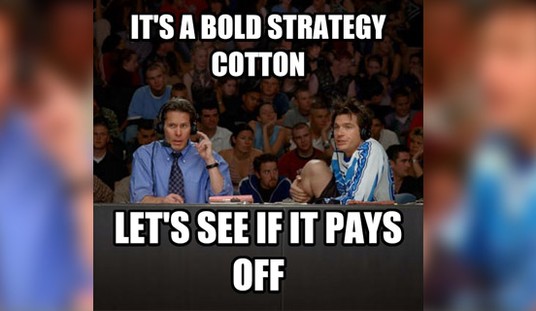It’s easy to confuse Slate with Salon.
Stuff like this is why:
The yellow fever epidemic in 19th century New Orleans can teach us a lot about the dangers of immunoprivilege today. https://t.co/3n8DXAXxB1
— Slate (@Slate) August 4, 2020
More:
Vincent Nolte, 19th-century German immigrant and cotton merchant, made millions after he survived a bout of yellow fever and went on to prosper in New Orleans. As historian Kathryn Olivarius writes, Nolte benefited from “immunoprivilege”: Since he had made it through the sickness, he became credit-worthy and found himself accepted in elite society. His experience did not, however, endow him with much sympathy for his fellow victims of yellow fever. He believed both that God had blessed him and that he had saved himself, having “not at all fe[lt] like dying.”
Olivarius wrote about New Orleans’ 19th-century culture of immunoprivilege in the New York Times way back in April, when we didn’t yet know how complicated the question of coronavirus antibodies was going to be. Back then, some were floating the idea of asking young people to deliberately infect themselves with the coronavirus so they could, brimming in antibodies, spearhead the “reopening” of the economy. Reading Olivarius’ work—an article in the American Historical Review, her dissertation—in the more uncertain month of August, I felt a violent shock of recognition at the social phenomena she chronicles.
In New Orleans, Olivarius finds, elites refused to do anything at all about yellow fever for a hundred years. Theirs was a mindset of fatalism and cruelty that reinforced the society’s many human hierarchies; they saw yellow fever as a dangerous rite of passage that the truly worthy would come through. But poorer people who survived yellow fever were rewarded with the worst, most dangerous jobs; white people used Black people’s supposed “natural” resistance to yellow fever to justify the continuation of slavery. And the wealthy often turned profoundly hypocritical when it was their own families in danger. (That era’s elite fled to their summer houses too.)
Recommended
Fitting that that piece was written by someone named Rebecca Onion, because it’s got the makings of a parody.
"As historian Kathryn Olivarius writes, Nolte benefited from 'immunoprivilege': Since he had made it through the sickness, he became credit-worthy and found himself accepted in elite society."
Notle really should've tried harder to perish from the virus.
— Regs (@r3gulations) August 4, 2020
If only he’d checked his privilege.
Sure seems that way, doesn’t it?
"Immunoprivilege" lol this is too much even for Slate
— Lorenzo Ciorcalo (@rotovisor) August 4, 2020
We’re starting to wonder if there’s such a thing as “too much even for Slate.”
"Yellow" fever?!?
Who's racist now, bigot?
— Derick Alsept (@dfalsept) August 4, 2020
Snort.
But really. How is any of this sort of crap getting greenlit by Slate, or by any other ostensibly serious media outlet?
Now I know you folks aren’t serious.
Get out of here with that made up BS.
“Immunoprivilege”? What a moronic concept. Only the gullible will buy into that garbage.
— The Brisance of E (@The_Original_E_) August 4, 2020
This article can teach us a lot about the dangers of the media today.
— Craven Dave N (@DaveytheItalian) August 4, 2020
Oh gtfoh
— Blaise O’Connor (@CS_Pascal) August 4, 2020


























Join the conversation as a VIP Member